Le Col x McLaren Project Aero LS jersey review
We went to the wind tunnel to test Le Col's new kit, developed with McLaren, and were blown away by its performance
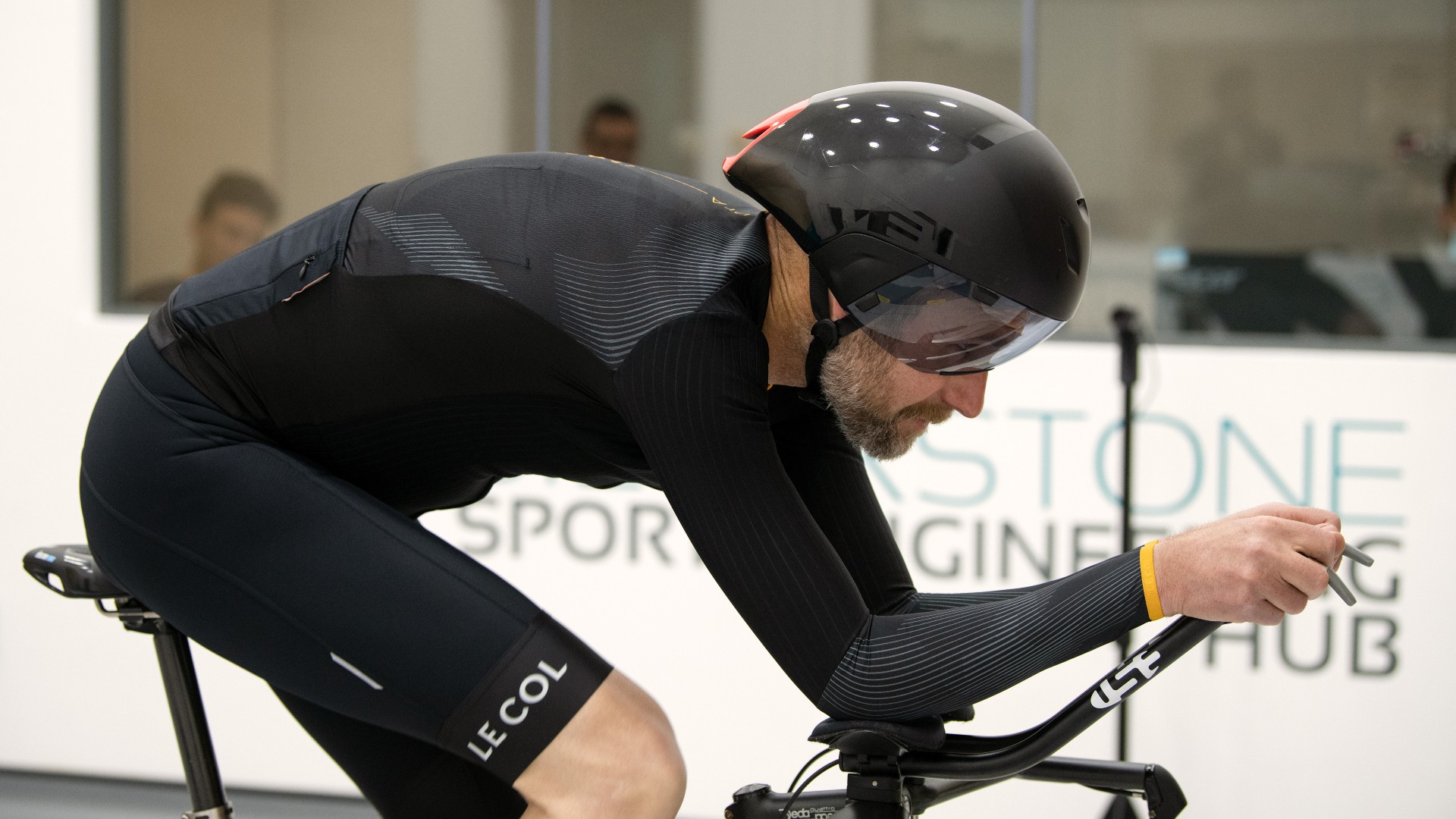
Worn with a regular pair of shorts, the Le Col x McLaren Project Aero LS jersey was faster in the wind tunnel than my club skinsuit, which was very impressive. If you don't want to wear a skinsuit but still want to benefit from aerodynamic clothing, then this would be a great option. At £195 it's priced higher than most jerseys and even some skinsuits, but it's a high-quality garment that's made in Italy and seems durable too, so on balance it's worth it.
-
+
Proven fast
-
+
Well fitting
-
+
Comfortable
-
+
Fast drying
-
+
Lightweight
-
+
Sleek looks
-
-
High price
You can trust Cycling Weekly.
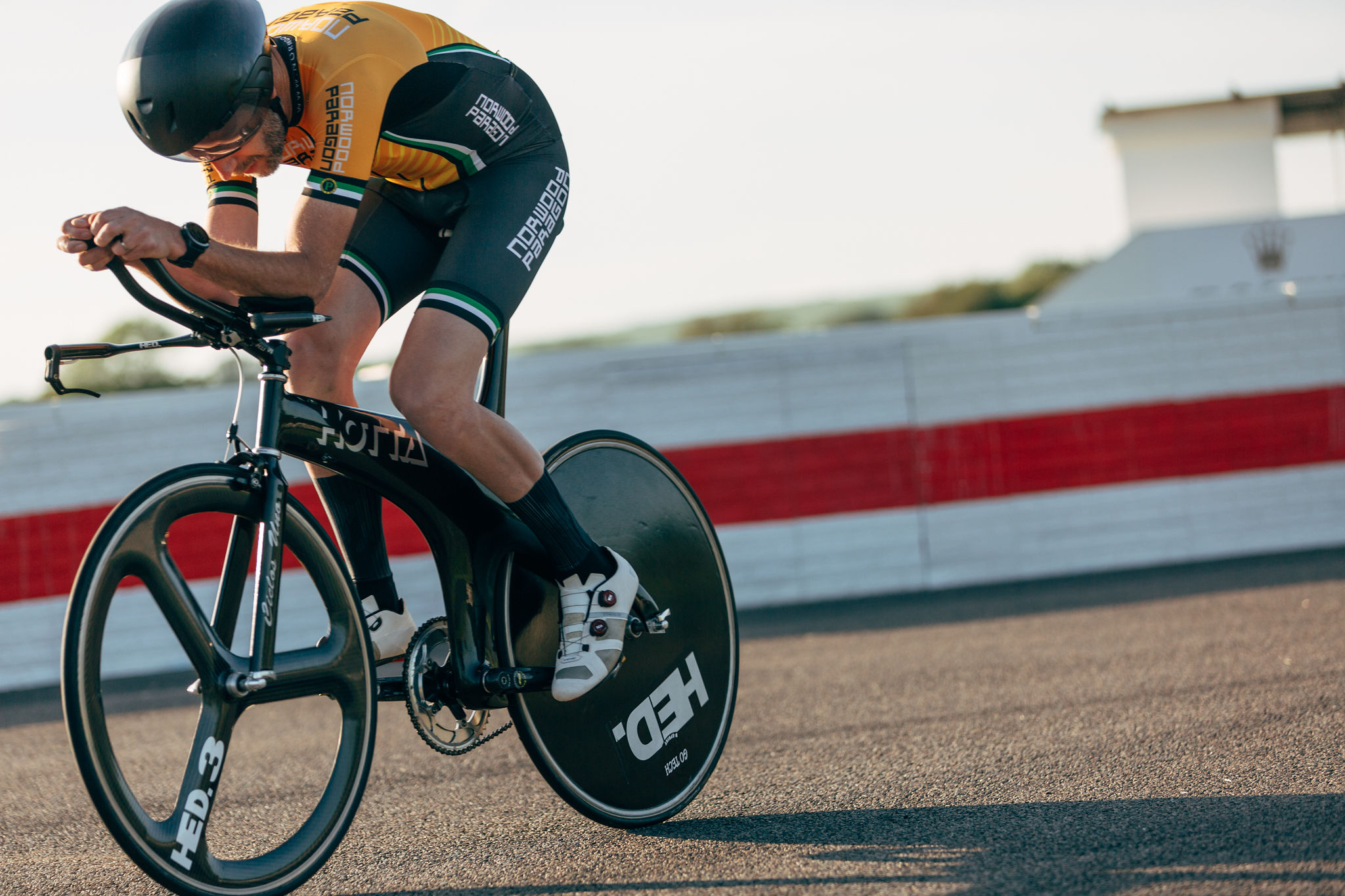
How do I know that the new Le Col x McLaren Project Aero long-sleeve jersey is faster than a skinsuit? Because I’ve wind tunnel tested it myself - and it's not often I can say that.
If I had a pound for every time I’d written in a review “but obviously it’s impossible for us to verify these claims” I’d, well, be able to afford a wind tunnel session. So when Le Col invited journalists to the wind tunnel at the Silverstone Sports Engineering Hub to test it against our own kit it was an opportunity I couldn’t miss.
Le Col and McLaren launched this kit earlier in the year off the back of their sponsorship of the Bahrain McLaren WorldTour team in 2020 with some big claims: “Tested against team issue WorldTour kit at races, in the wind tunnel and on the track. In every scenario, this kit has outperformed them all.”
I started by asking what it is that makes the Le Col x McLaren range - which as well as the long-sleeve jersey includes a short-sleeve jersey, a speedsuit, a skinsuit and aero socks - faster than everyone else's aero kit.
“The McLaren badge,” answered Matt Williams, principal aerodynamics engineer and the man behind the range. He's only half joking. “Nobody is as protective of their brand as McLaren,” he says, “or as careful about what they put their name to.
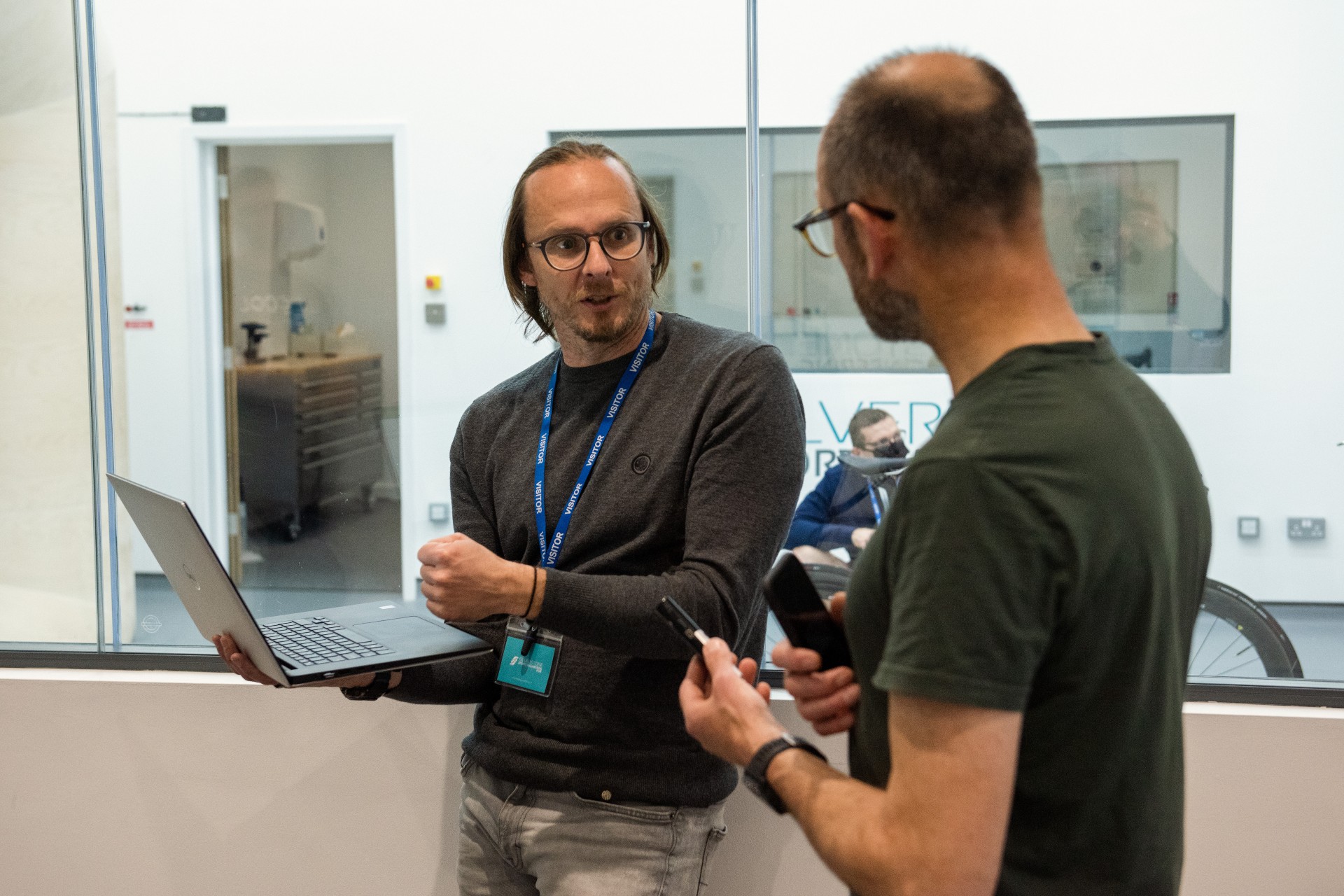
“From the outset the aim was to take McLaren’s expertise, not just in aerodynamics, but performance modelling, prediction, composite design and then marry them with the cycling world,” says Williams, who has a PhD in aerodynamics and has worked for McLaren for 15 years both in F1 and in cycling – he was aerodynamics lead on Specialized’s S-Works+McLaren project.
“That’s why it’s called ‘Project Aero’ – it was about more than just clothing.”
McLaren didn’t last long enough with the Bahrain team to develop more equipment beyond the clothing, pulling out at the end of the 2020 season. Williams says he doesn’t know why, particularly as McLaren is effectively owned by the same people – the Bahrain government. “I think officially the answer is Covid.”
However, Le Col boss Yanto Barker says the brand is about to announce a new WorldTour partnership and Matt Williams will remain involved. “The WorldTour is essential to demonstrate that we can make kit for the best riders in the world at the highest level and we absolutely must be there.”
Le Col x McLaren LS jersey: construction
First of all, over to Matt Williams for an explanation of what makes clothing aerodynamic: “When the air hits you for the first time the fabric needs to develop a micro turbulence, which helps the larger body of air travel around, separate and then when it gets to the wake behind you you’re trying to reduce turbulence again because the drag is happening after the air has disconnected.
“When the air is turbulent it has more energy and it’s easier for it to stick to complicated shapes. Generally, the longer it sticks to something, the lower the drag of that shape. But the downside of the air being churned up is that it provides more friction on the surface. So you want to mix low-friction surfaces where you don’t need turbulence, with turbulence where you need to keep the flow attached to negotiate complicated shapes - to come back in after the arms or other bits that might protrude.”
“So the fabric needs roughness, whether it’s lines or dimples,” says Barker.
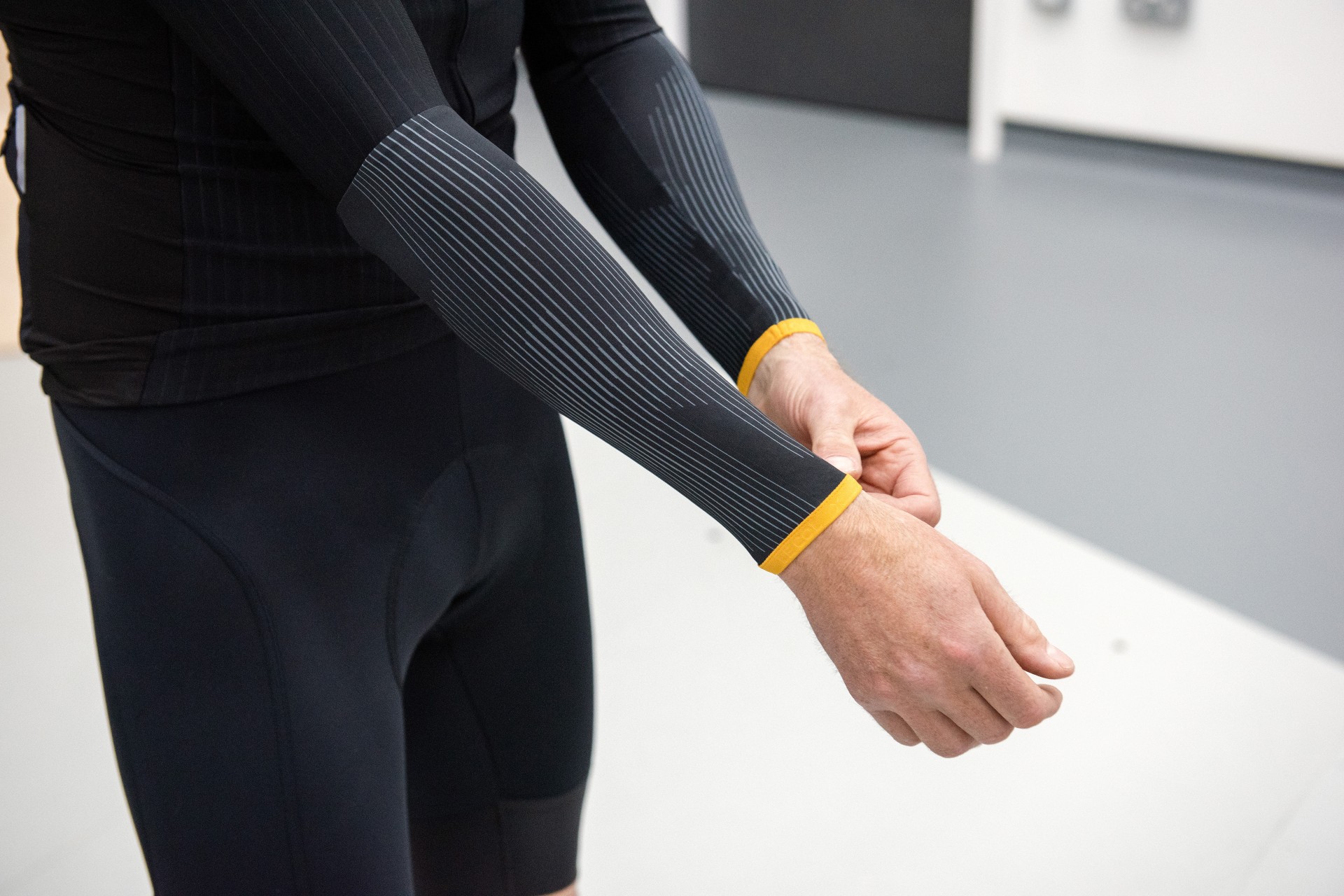
The Le Col x McLaren Project Aero LS jersey uses ribbed fabric on the upper arms and front, while it's smooth on the back.
“Lines are better in a wider range of positions,” explains Barker. “For instance tripping lines [ie ribbed fabric that turbulates the airflow] on the forearms are very good for when you’re in the drops position. This is why there are lots of nuances around this. When you’re sprinting you don’t have your arms in a TT position.
“Tripping fabric on the lower arm would help on the drops. Less helpful when arms are horizontal. Tripping lines detract less in the horizontal position. Dimples are better in the vertical position but then become worse in the horizontal position. So you need to work out what position this material is going to be used in for the various positions on the bike and then you tailor that to make sure you get it lined up properly and don’t inadvertently make it faster in one position but slower in another.
“Equally, lower limbs with the vertical movement in the pedal stroke, they’re better being smooth. It’s difficult to create roughness that delivers a real material improvement on shorts panels, which is why we don’t have aero shorts."
The materials Le Col uses are readily available, Barker explains. He likens it to “curating” material that’s available to everyone but it’s putting it all together in the right configuration that makes it fast.
I tested the Le Col x McLaren Project Aero LS jersey in a size small and found for me - 178cm, 68kg - it was a perfect fit. Incidentally, the road speedsuit in a small was very tight and I would suggest sizing up to size M.
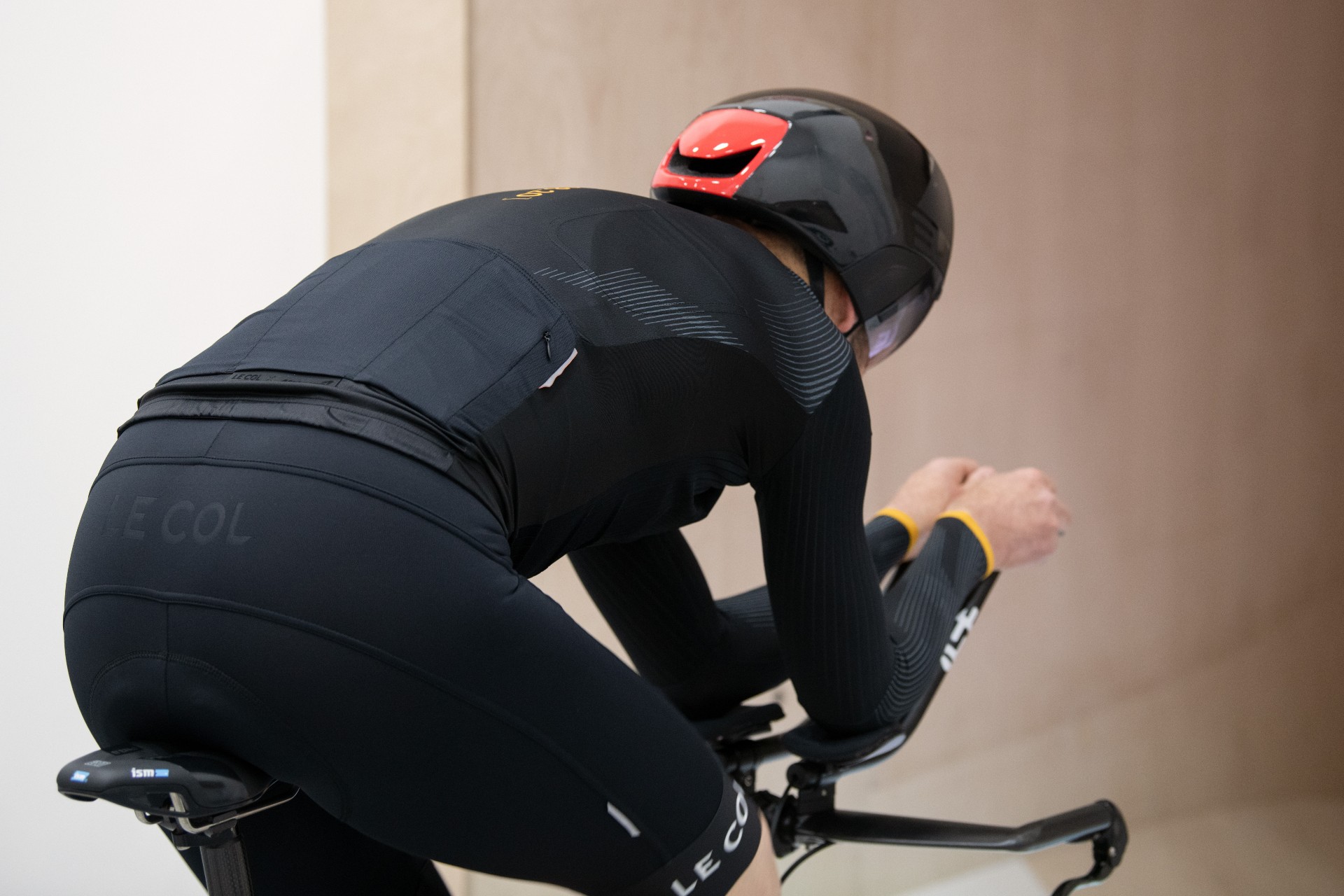
There are three rear pockets that don’t have a great deal of reinforcement - fair enough, given that this isn’t exactly a jersey you’d wear for the daily commute - but they do have plenty of stretch, are actually useable and even have a small waterproof zipped compartment.
I found the cut perfect - and it blended in with my club bib shorts so well when I wore it for a club time trial, one of my clubmates thought it actually was a speedsuit.
The gold detailing is subtle - but don’t ask me what the numbers printed on the back mean.
It’s very nicely stitched and has a high quality look and feel - and is made in Italy.
The wind tunnel run (and the club TT)
Admittedly my Bioracer club skinsuit isn’t cutting edge and it probably stretches in all the wrong places, but how would it measure up against the Le Col x McLaren Project Aero LS jersey in two wind tunnel runs at different speeds?
I scanned Barker’s face but couldn’t detect any concern as I settled down on my bike to face the whirling turbine blades.
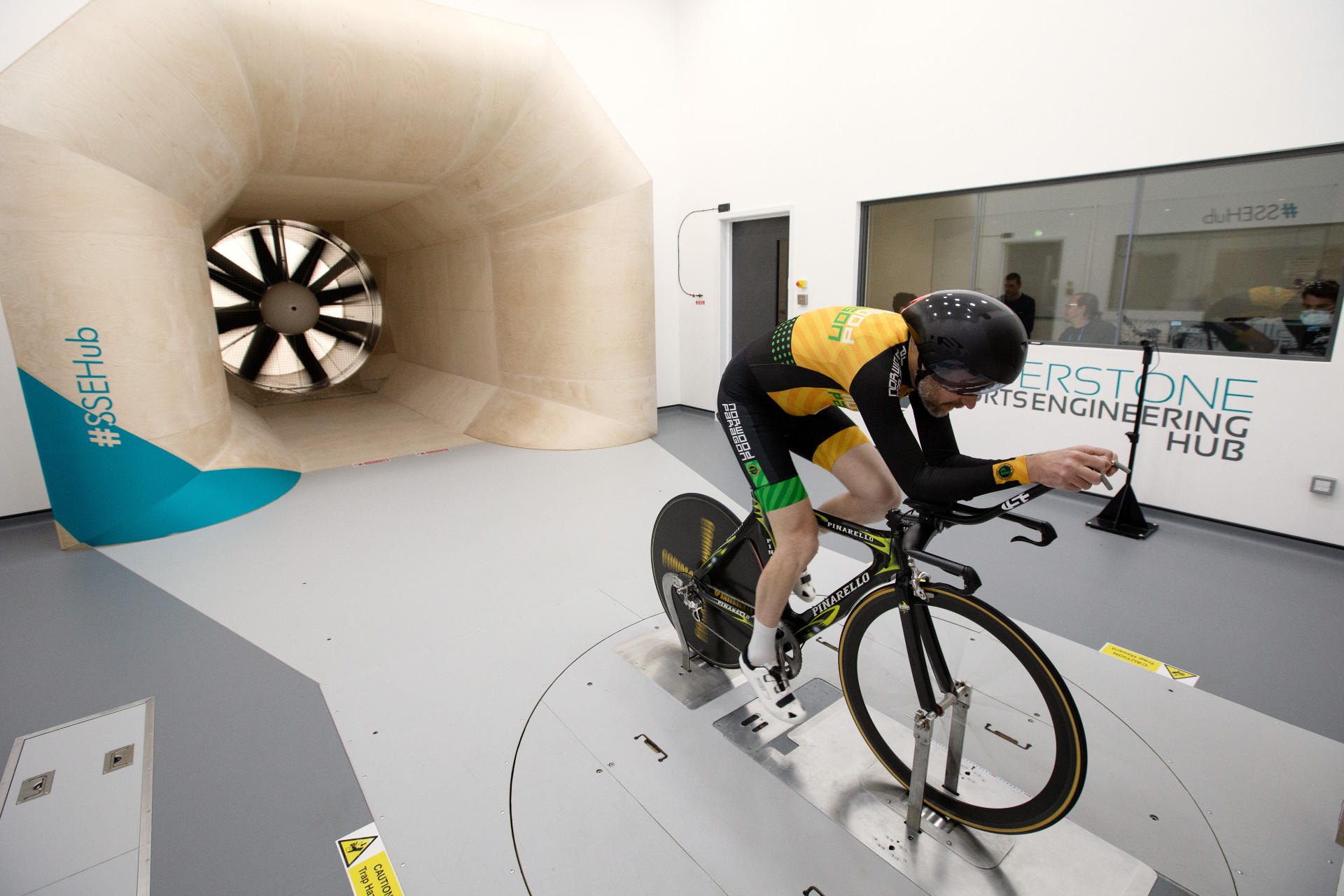
We tested my club skinsuit to collect the base numbers, followed by the Le Col x McLaren Project Aero LS jersey at 40kph and 45kph.
Barker looked even more relaxed when he emerged from the control room with the results. Had he known from the start that his kit would be faster than mine? “There are a lot of nuances to aerodynamics and even stretch of material, how much air gets trapped between fibres, the roughness created from what was a smooth material but then becomes rougher... you can never tell exactly how it’s going to work for a certain rider and a certain shape, hand position, arm position, shoulder position. So it’s difficult to guess. But you start to home in on what’s needed to deliver a good aerodynamic garment and the skinsuit you’ve got is lacking some of those, but it’s not one of the most expensive ones so it’s not surprising.”
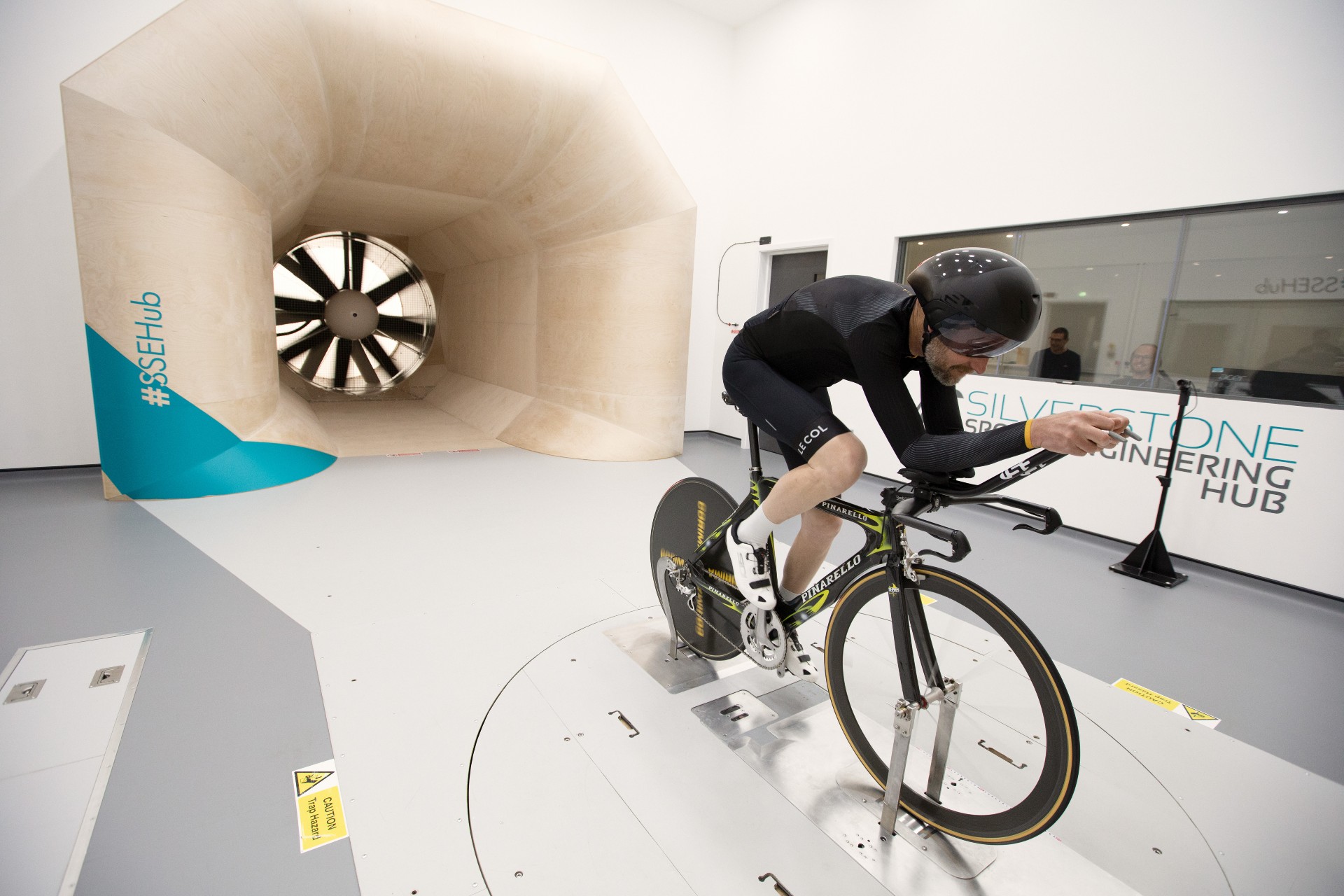
The results are in. The Le Col x McLaren Project Aero LS jersey posted an improvement over my club skinsuit of 4.7 watts at 40kph and then 4.3 watts at 45kph. I also tested the Le Col x McLaren Project Aero short-sleeved road speedsuit – combined with the aero socks that saved 5.8 watts at 40kph, and 9.0 watts at 45kph.
So that’s it – the numbers don’t lie and for once I can say that this kit is faster and not just claims to be, although of course the skinsuit I brought with me wasn’t the fastest in the world and neither does it claim to be. I have to say I expected the road speedsuit to be faster than my skinsuit, but I was impressed that the jersey combined with regular bib shorts was faster too.
For me the long-sleeved jersey is more practical than the speedsuit, even though it was a few watts slower.
Any event where I want to be as fast as possible generally means club kit and that rules out a plain black skinsuit or speedsuit, but the Le Col x McLaren Project Aero LS jersey means club bib shorts can be worn so I can still represent the mighty Norwood Paragon - and now I know that’s a faster set-up than my club skinsuit.
The LS jersey also wouldn’t look out of place on a fast group ride or secret attempt on a Strava segment, whereas a skinsuit says you might be taking things a bit too seriously.
I’m finding the jersey perfect for club time trials, for which I’m riding a road bike at the moment. It is comfortable and non-restrictive and you can get away with wearing it for a pint afterwards, whereas I wouldn't walk into a village pub wearing a skinsuit.
Although it’s lightweight the Le Col x McLaren Project Aero LS jersey seems durable, it has come through the washing machine looking as good as new (and incredibly almost dry) and safety pins haven’t marked it.
Value and conclusion
£195 is a lot to pay for a jersey, but for one that outperforms a skinsuit it’s not quite so outrageous. Having said there, there are lower-priced skinsuits and speedsuits around, such as the Nopinz Pro-1 speedsuit that we reviewed recently for £139.99. The Velotec Pro Aero Speedsuit is cheaper still at £100.
Of course there are much more expensive skinsuits around - the majority of the faster ones cost over £200, with the Le Col x McLaren Project Aero short-sleeved speedsuit, which I tested in the wind tunnel, costing £350 and the flagship Le Col x McLaren Project Aero long-sleeved skinsuit costing £375 (launched since our wind tunnel session).
If you want proven aero benefits from technical clothing but don’t want to go the whole hog with a skinsuit then the Le Col x McLaren Project Aero LS jersey is an excellent choice.
| Le Col x McLaren Project Aero LS jersey | Header Cell - Column 1 | Header Cell - Column 2 |
|---|---|---|
| Price at time of review | £195 | Row 0 - Cell 2 |
| Weight | 153g (size S) | Row 1 - Cell 2 |
| Sizes | XS, S, M, L, XL, XXL, 3XL | Row 2 - Cell 2 |
| Contact | www.lecol.cc | Row 3 - Cell 2 |

Thank you for reading 20 articles this month* Join now for unlimited access
Enjoy your first month for just £1 / $1 / €1
*Read 5 free articles per month without a subscription

Join now for unlimited access
Try first month for just £1 / $1 / €1
Get The Leadout Newsletter
The latest race content, interviews, features, reviews and expert buying guides, direct to your inbox!
Simon Smythe is a hugely experienced cycling tech writer, who has been writing for Cycling Weekly since 2003. Until recently he was our senior tech writer. In his cycling career Simon has mostly focused on time trialling with a national medal, a few open wins and his club's 30-mile record in his palmares. These days he spends most of his time testing road bikes, or on a tandem doing the school run with his younger son.
-
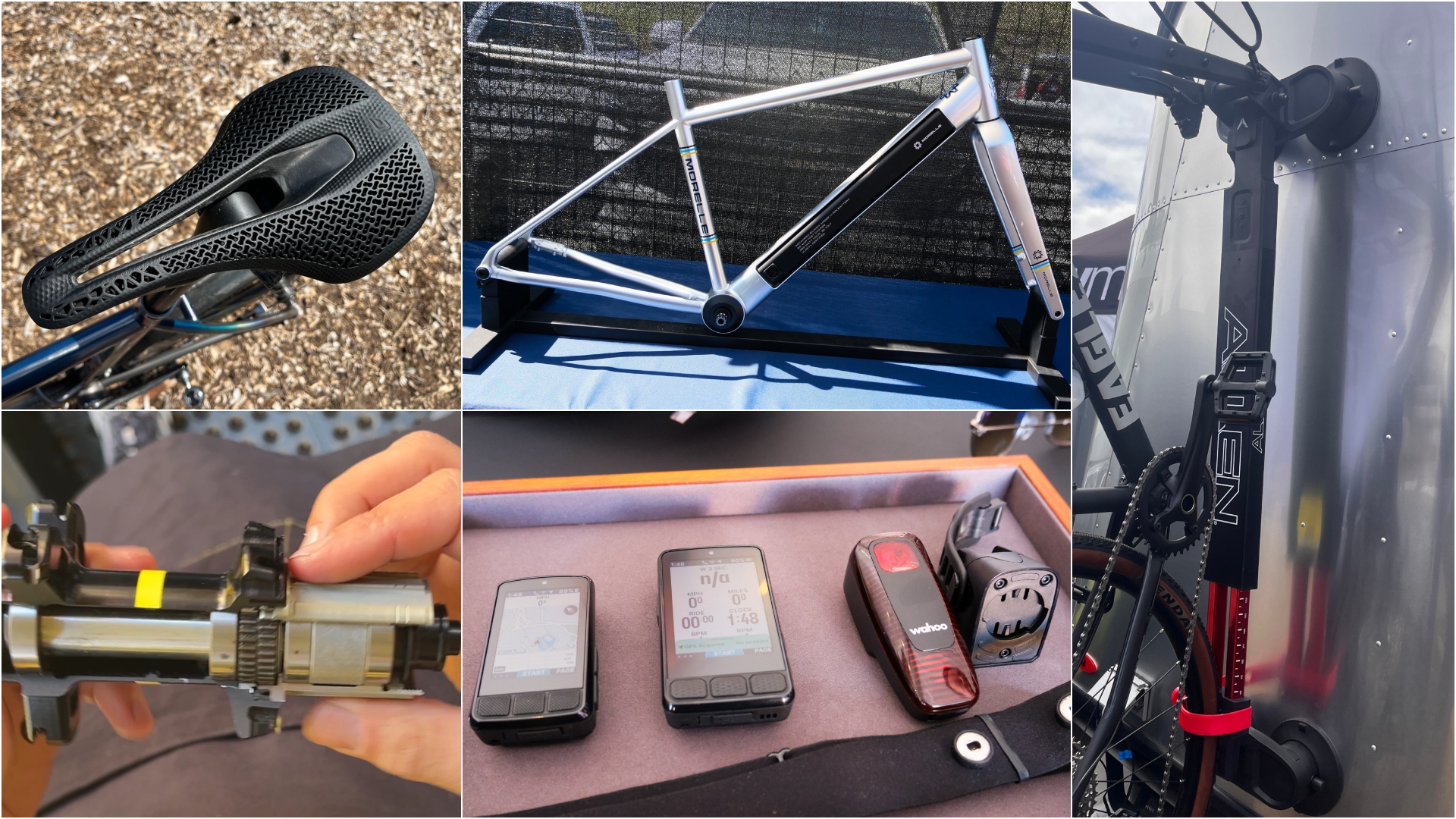 A bike rack with an app? Wahoo’s latest, and a hub silencer – Sea Otter Classic tech highlights, Part 2
A bike rack with an app? Wahoo’s latest, and a hub silencer – Sea Otter Classic tech highlights, Part 2A few standout pieces of gear from North America's biggest bike gathering
By Anne-Marije Rook Published
-
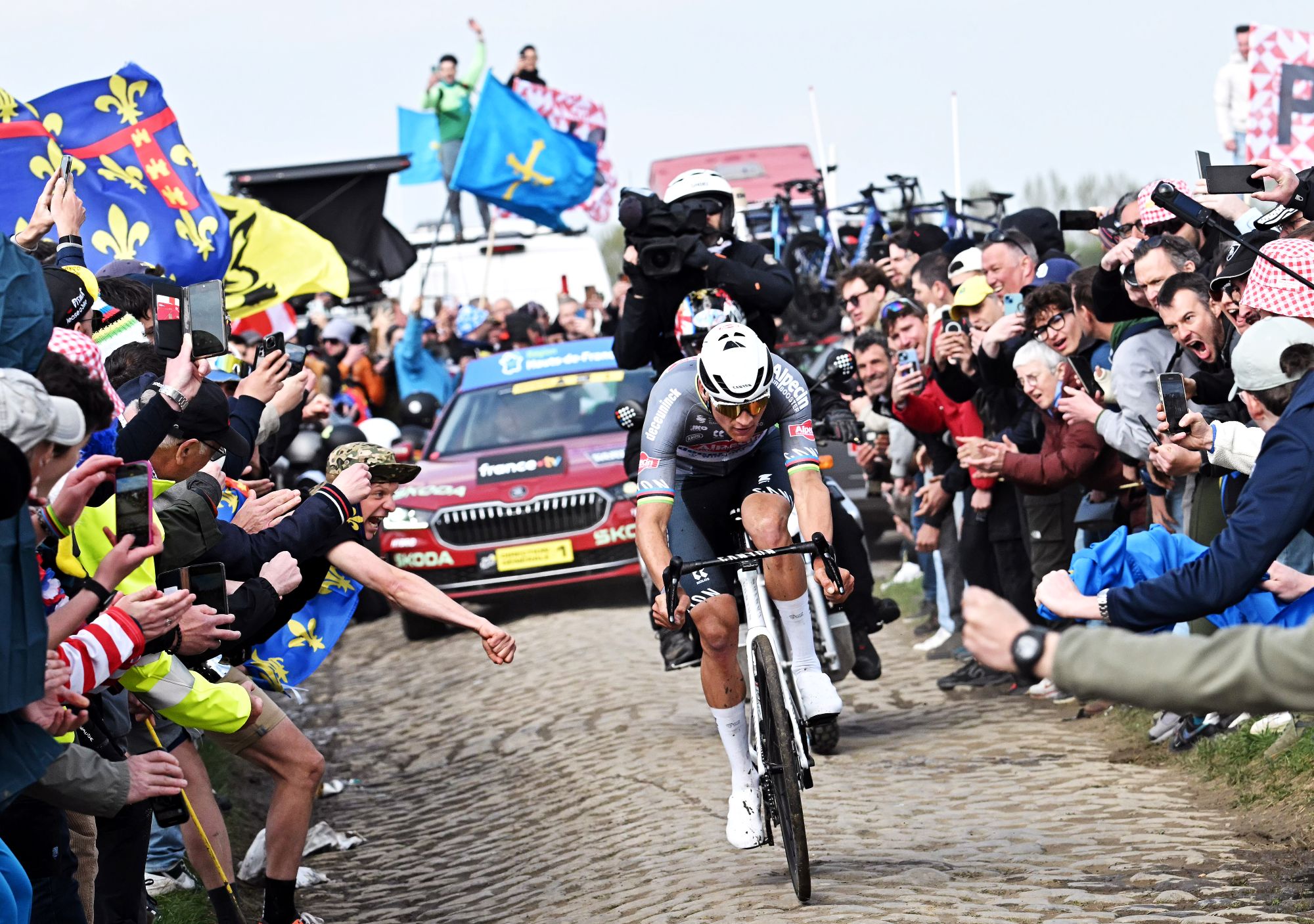 Cycling's riders need more protection from mindless 'fans' at races to avoid another Mathieu van der Poel Paris-Roubaix bottle incident
Cycling's riders need more protection from mindless 'fans' at races to avoid another Mathieu van der Poel Paris-Roubaix bottle incidentCycling's authorities must do everything within their power to prevent spectators from assaulting riders
By Tom Thewlis Published
-
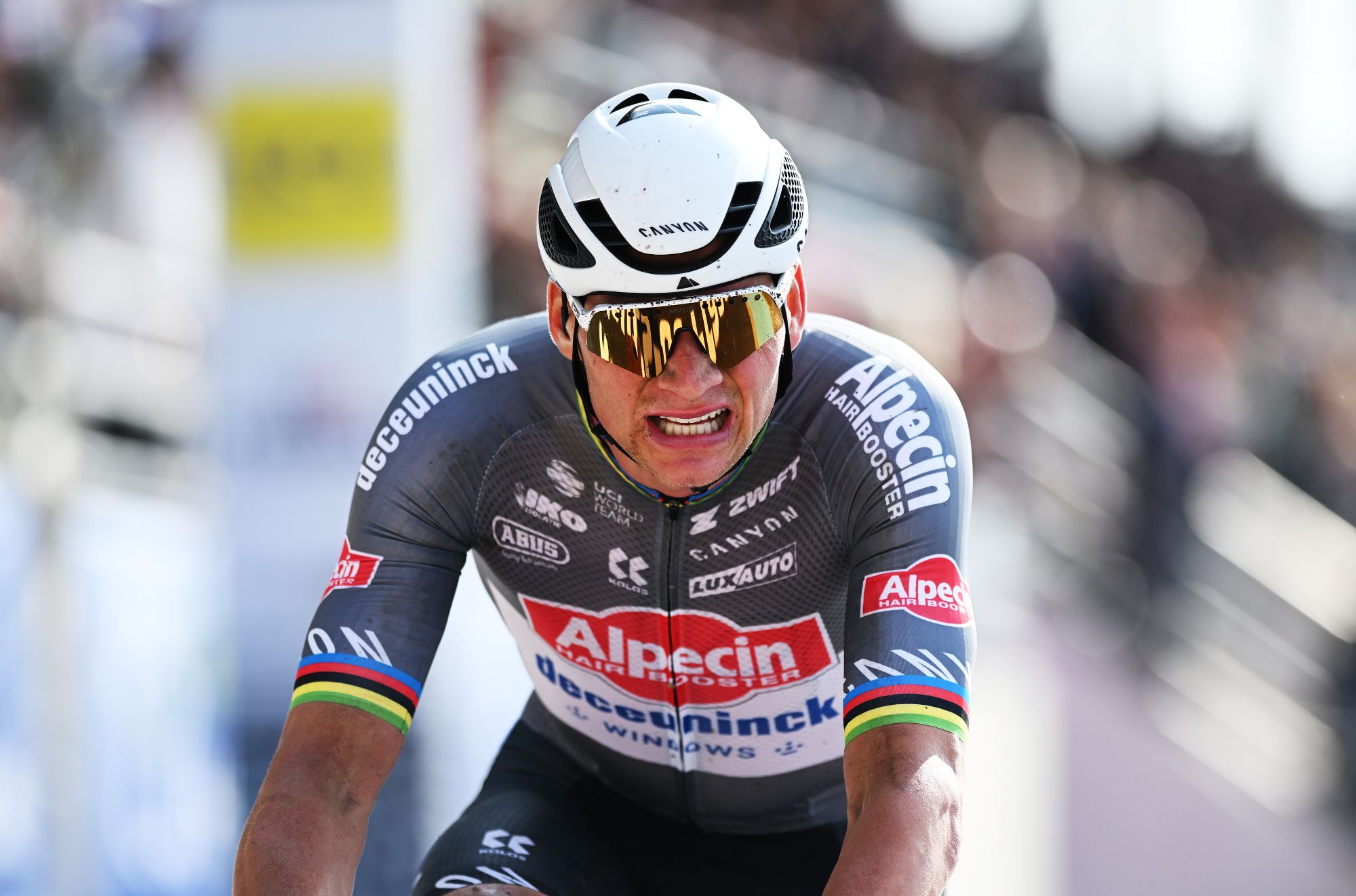 Man hands himself in to Belgian police after throwing full water bottle at Mathieu van der Poel during Paris-Roubaix
Man hands himself in to Belgian police after throwing full water bottle at Mathieu van der Poel during Paris-Roubaix30-year-old was on Templeuve-en-Pévèle cobbled sector when television pictures showed the bottle hitting him in the face
By Tom Thewlis Published